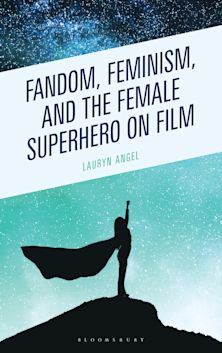Fantasies of Singledom
Living in the Cultural Imaginary of Single Femininity
Fantasies of Singledom
Living in the Cultural Imaginary of Single Femininity
Description
In Fantasies of Singledom, Kate R. Gilchrist examines how the representation of the single woman manifests itself in contemporary popular culture across the United Kingdom, the United States, and Europe, placing this image in juxtaposition to the lived experiences and self-narratives of single femininity in everyday life.
Gilchrist skillfully brings these two conceptualizations of feminine singlehood into conversation with one another by incorporating in-depth interviews with twenty-five women living in London alongside critical analyses of eight cross-genre media texts which foreground single women. In doing so, she illuminates not only the ways in which women's experiences draw on or converge with media representations, but also where their narratives resist or rework such ideas, interrogating recurring themes of success, transformation, autonomy, silencing, invisibility, and-perhaps most prominently-the notion of the “ideal” femininity being a coupled one.
Building on research that has largely centered on North American contexts until now, Gilchrist also considers how these discourses manifest intersectionally, demonstrating the necessity of a multi-faceted approach in achieving a fuller understanding of how experiences of singledom are shaped by external factors. Ultimately, Fantasies of Singledom significantly expands upon and complicates existing theorizations of the relationship between cultural representation and gendered subjectivity formation in postfeminist cultural contexts.
Table of Contents
Acknowledgements
Introduction: The Rise in Single Women and the Cultural Figure of the Single Woman
1. Fantasies of Freedom: Independence and the 'Successful' Single Subject
2. The Self-Surveilling Subject: Finding, Regulating, and Transforming the Single Self
3. The 'Failed' Single Subject: (Re)negotiating the Boundaries of Feminine Subjectivity
Conclusion: Postfeminist and Post-Pandemic Re-imaginings
Appendix 1
Methodology
Appendix 2
Demographics of Interviewees and Interview Locations
Appendix 3
Media Texts
Bibliography
About the Author
Index
Product details

| Published | 13 Nov 2025 |
|---|---|
| Format | Ebook (PDF) |
| Edition | 1st |
| Extent | 200 |
| ISBN | 9798216253884 |
| Imprint | Bloomsbury Academic |
| Illustrations | 2 tables |
| Publisher | Bloomsbury Publishing |
Reviews

ONLINE RESOURCES
Bloomsbury Collections
This book is available on Bloomsbury Collections where your library has access.



































